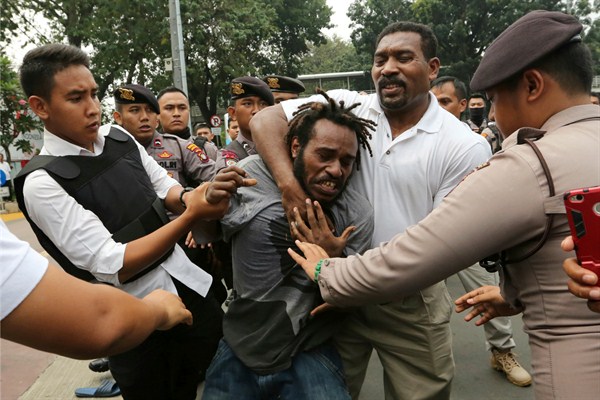Earlier this month, the Indonesian military raided and destroyed the offices of the West Papuan National Committee, a separatist group in the country’s easternmost region, which has long agitated for independence. The raid came amid allegations that the military had used chemical weapons in airstrikes on separatists in West Papua in late December. The Indonesian government has responded harshly after at least 17 construction workers were killed by West Papuan militants in early December, the deadliest such attack in West Papua in years.
This surge in unrest in the region is the outcome of a harder line that the Indonesian government has taken on West Papua in recent years. During the United Nations General Assembly last September, the prime minister of the tiny Pacific island nation of Vanuatu, Charlot Salwai, criticized that approach. Referring directly to West Papua, he said the Indonesian government needed to “put an end to all forms of violence and find common ground with the populations to establish a process that will allow them to freely express their choice.”
The reaction from Indonesia, which is usually quiet at the U.N., was fierce. President Joko Widodo hasn’t even bothered to attend the General Assembly in his five years in office, but his government immediately lambasted Salwai. Jakarta’s permanent representative to the United Nations, Dian Triansyah Djani, declared that “Indonesia will not let any country undermine its territorial integrity.” Referring to separatist and independence groups in West Papua, he said Indonesia also “fail[ed] to understand the motive behind Vanuatu’s intention in supporting a group of people who have [struck] terror and mayhem [on] so many occasions, creating fatalities and sadness to innocent families of their own communities.”

